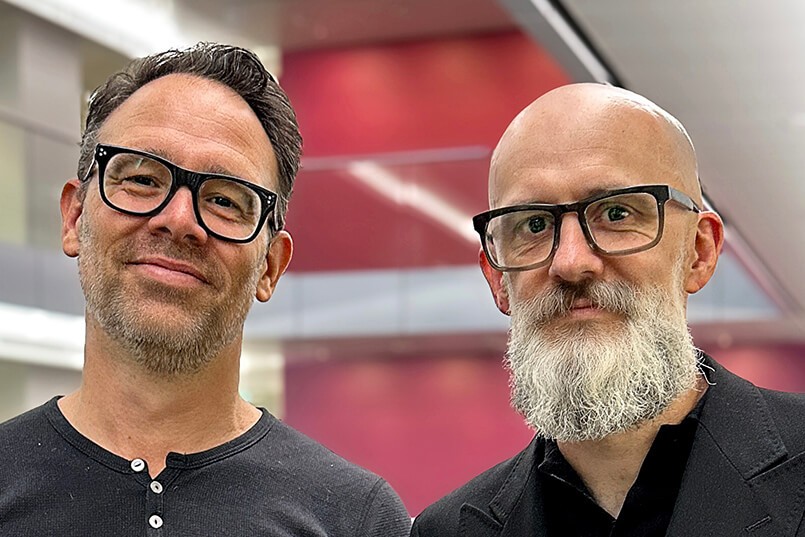Firstly I want to be very clear of what we are talking about when we refer to content strategy. Because often content is interpreted as media content such as programming and films. But in fact content has a much broader definition.
Content strategy basically is the development or procurement of brand related content (anything that represents the brand experience – advertising, public relations video, text, music, software, etc) that is then used or made available to consumers to engage them in the brand experience and encourages them to share those experiences with others.
In the past 12 months we have had increasing numbers of marketers approach us to discuss how they should restructure their marketing department and their supplier roster to embrace and implement a content strategy for their brands.
The first issue is having them clearly articulate their understanding of a content strategy and how they may see that evolving. From this we can then begin to develop a clear understanding of their current state and propose a future state that can deliver this content strategy vision.
Often this vision is not fully formed. This is understandable as the process requires a complete transformation of the role of marketing from the traditional broadcast / publishing approach to brand management to a test and learn approach.
In this process, it requires the marketers themselves to rethink not only their role in the process, but also how this impacts on the way they work with internal stakeholders and external suppliers.
There have been many different metaphors proposed for the roles of the marketer in this process.
The Royal Court
There is a monarch sitting on the throne, surrounded by courtiers and advisors on how to run their kingdom. They take advice, consider the options and then make proclamations.
I have known several CMOs that embody this metaphor. But largely it is, like a monarchy ruler, largely outdated and ceremonial. It places marketing at a distance from their subjects, the consumer and has a patriarchal overtones that are more reminiscent of the broadcast / publishing model.
i.e. Here we are, smugly superior in the castle, dispatching proclamations to our subjects, the consumer, hoping they will not revolt.
The Army General
Military metaphors abound in marketing of old. Target audiences and Campaigns the most obvious. And that is the trouble with being the General, your mission is to defeat your enemy with all the resources you have at your disposal.
But now, through social media, the enemy, your consumer and customers are fighting back. It is a battle and the problem is that with so many choices the worst thing that can happen is they no longer even fight back, they simply ignore you completely.
The Football Coach
Second only to military metaphors in marketing are the sporting metaphors. And not just marketing, these metaphors are still used in business.
Kicking goals is the role of everyone in sales and marketing. But who is the team we are trying to beat? It is not our customers, they are in the stands, waiting to see who the winner is. They cheer on the side they support. So it must be the competitor, or better phrased, competitors, because there are many more than ever before.
In this scenario, marketing communications is a performance between the various brands with the consumer looking on. But the fact is most marketing is developed for the consumer and not the competitor.
The Orchestra Conductor
This was proposed last year in AdAge in regards to the way a marketer should consider how they manage and work with the growing number of agencies and suppliers on the brand roster.
There is the rarified air of the concert hall, the marketers lays out the marketing plan in the form of the strategy. In most cases it is a tried and tested classical favourite guaranteed to draw the audience, the consumer. As the conductor it is the marketers role to ensure the various agencies work in harmony to maximise the experience of the performance. And at the end the audience applauds in relation to their level of delight and politely leaves.
As a metaphor it is more focused on the maximisation of the performance, which is the context it was delivered in the article. But it is still largely a one way performance and lacks the dynamics of the modern market place.
The Circus Ringmaster
Sure, circuses are largely old hat and for children. But circuses like Circus de Soleil and a the like have and are constantly reinventing the circus experience in response to the audience demand.
The circus ringmaster has a role to manage the event, but they are not responsible for developing each and every performance (content). That is the role of the individual artists (content providers). The ringmaster chooses the mix of performances, schedules the performances and does so in response to delivering the audience a brand experience that they all share.
Ideally it will be entertaining, informative and surprising. The audience will gasp, and cheer and applaud and interact throughout. And while the ringmaster is not centre stage, as the focus is on the performers, the ringmaster is just off to the right listening to what resonates and what does not. While as a metaphor for marketers, the ringmaster is not perfect, it does capture the dynamics and interactions. They measure success through customer feedback and the door takings.
What it does provide is a vision for the role of the marketer in this new paradigm. One that reflects the role of the marketer and the relationship with suppliers, agencies and most importantly the customer.
In a conversation I had with Shawn Callahan, co-Founder of Anecdote, he suggested a further exploration of the marketing metaphor to that of:
The Social Activist
Here the marketer is stimulating the crowd with content messages and looking for the patterns and opportunities in the crowd activity to maximise the impact and effectiveness of the action with interventions and co-ordination.
What do you think? Is there a metaphor that is even better at defining this role? Let me know by leaving an example and your thoughts as a comment here.





5 thoughts on “Why marketing is becoming the new ring master of the content strategy”
Great metaphors Darren and the Cirque du Soleil example really resonates. The brand turned the concept of Circus performance and entertainment on its head many years ago. However, it’s the listening to its customers that has helped it continually reinvent itself and keep it relevant, entertaining, exciting and engaging. Brands in the old “Royal Court” era will continue to decline as they become irrelevant and consumers (who now have the power) will leave in droves to those who do listen, who do engage, who do evolve as their their needs evolve. We’ve discussed this before but maybe the role of the marketer is evolving to that of Community Manager where his responsibility lies not only in managing the internal brand tribe but also in listening to and engaging the consumer tribe(s). This role has to accept that they do not hold all the power yet they do have the resources to act on the sentiment of these tribes. This “listening” has ramifications not only for customer service and satisfaction (think Zappos) but also for new product development and staying ahead of the competition (think Starbucks MyIdea).
I like the term "duck herder". On land it's a little chaotic. In water you see a calm body and head but rarely take into consideration the frenetic feet paddling! It takes a lot of work to manage great content and achieve higher content engagement. However once you've 'quacked' it you can 'brace' yourself for team success.
Addendum to my last comment: http://www.smartcompany.com.au/advertising-and-ma…
Interesting metaphor's Darren indeed.
I like Anton's Duck Herder explanation and even the puns. Funny though how in so many instances which we have all experienced, its more like herding cats.
I myself have strong affiliation with the Ring Master metaphor, although am a bit Coulrophobic.
I've even been guilty of presenting what we do and how we do it, wearing just that – a ring master cape, hat etc.
And amusingly, I even remember (believe it or not) wearing a ring master outfit to one of those legendary, lavish Saatchi & Saatchi Xmas Parties.
Thanks Shirley. The other day I heard a CMO presenting at a conference and they were completely the Royal Court. He was talking about how agencies are lazy and not focused and losing relevance. But the underlying tone was that the agencies were there to please the King and if not, then "Off with their heads" just like Alice in Wonderland. It is interesting the way using metaphors and the underlying story allows you to begin to classify and make sense of the various management approaches marketers are using.
Comments are closed.